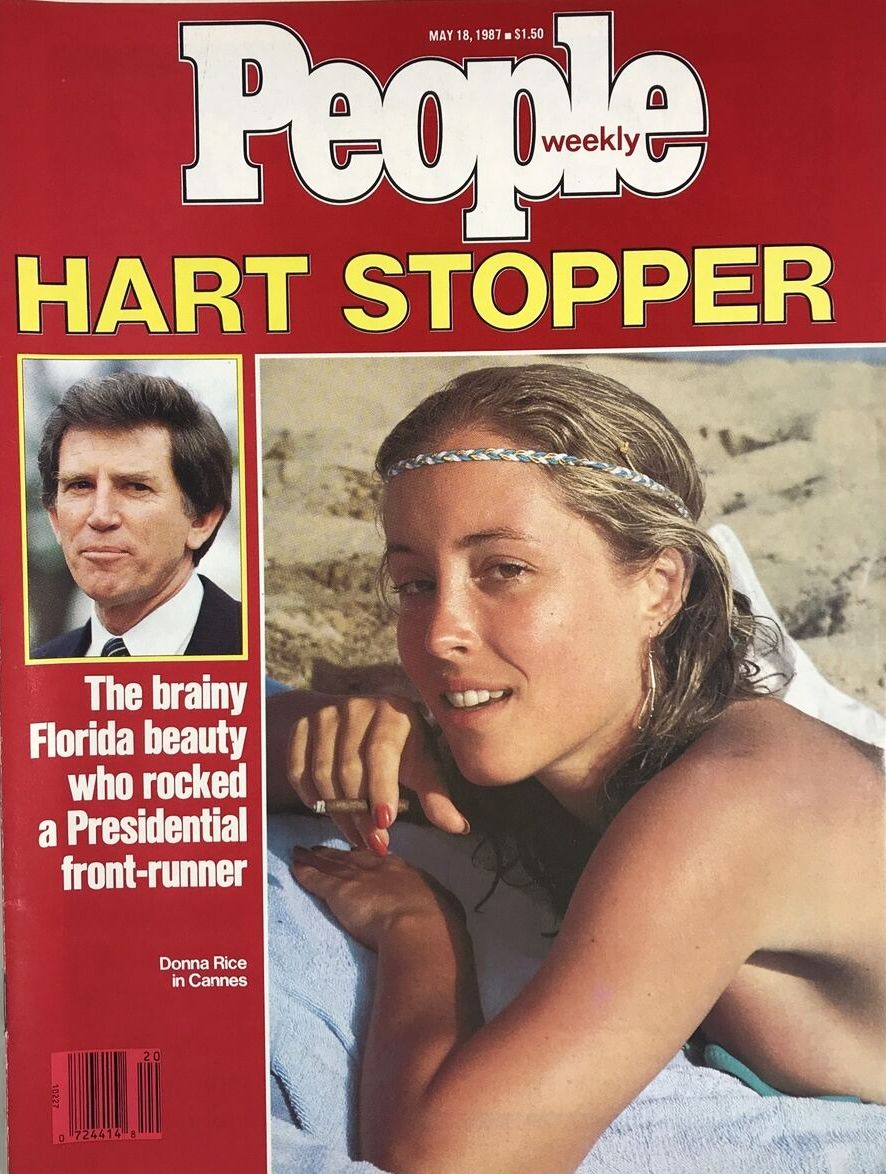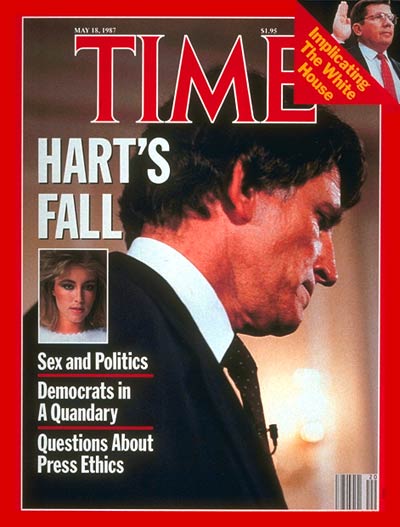Authors:
Historic Era:
Historic Theme:
Subject:
| Volume 1, Issue 1


Authors:
Historic Era:
Historic Theme:
Subject:
| Volume 1, Issue 1

Thirty-six years ago this month, rumors began circulating about the supposed extramarital affairs of Sen. Gary Hart, the leading candidate for the 1988 Democratic nomination for president.
In response, Hart challenged the media. He told The New York Times in an interview published on May 3, 1987 that they should "follow me around. . . . They’ll be very bored." As the NBC anchor John Chancellor explained a few days later, "We did. We weren’t."
Seldom if ever has a major presidential candidacy crashed and burned so quickly. On May 8, 1987, a mere five days after issuing his challenge, the Colorado senator withdrew as a candidate. He would reenter the race the following December, but he would then withdraw a second time after winning just four percent of the vote in the New Hampshire primary in February 1988. His political career was over.
Hart, the son of a farm-equipment salesman, was born in Ottawa, Kansas in 1936 with the surname Hartpence (he legally changed it in 1965). He attended a local college and then went to both Yale Divinity School and Yale Law School. He practiced law for several years in Denver and then took on the task of running the very long-shot campaign of Sen. George McGovern of South Dakota for the 1972 Democratic presidential nomination.
It made his political reputation, for it turned out that the McGovern campaign had a secret weapon. After the 1968 Democratic convention was marred by riots in the streets of Chicago outside and near chaos inside, the Democratic Party established a commission to reform the nominating process.

Its recommendations, adopted by the party, sharply curtailed the power of elected officials and party insiders to choose delegates; increased the importance of caucuses and primary elections; and mandated quotas for blacks, women, and youth. The chairman of the commission, Sen. George McGovern, understood far better than the other candidates how much the rules had changed the political landscape. Hart exploited that understanding to the hilt.
While McGovern took only one state and the District of Columbia against Richard Nixon, no one blamed this on Hart. Two years later, he captured a Colorado Senate seat in the Democratic landslide of 1974, and he was reelected easily in 1980. He ran for the Democratic presidential nomination in 1984, and, though he lost out to the more senior Walter Mondale, who had served as Jimmy Carter's vice president, he established himself as a serious candidate who was young, attractive, articulate, and seemed to offer new ideas.
He declined to run for reelection to the Senate in 1986 in order to devote his full attention to winning the 1988 Democratic nomination for president. Against a lackluster field,